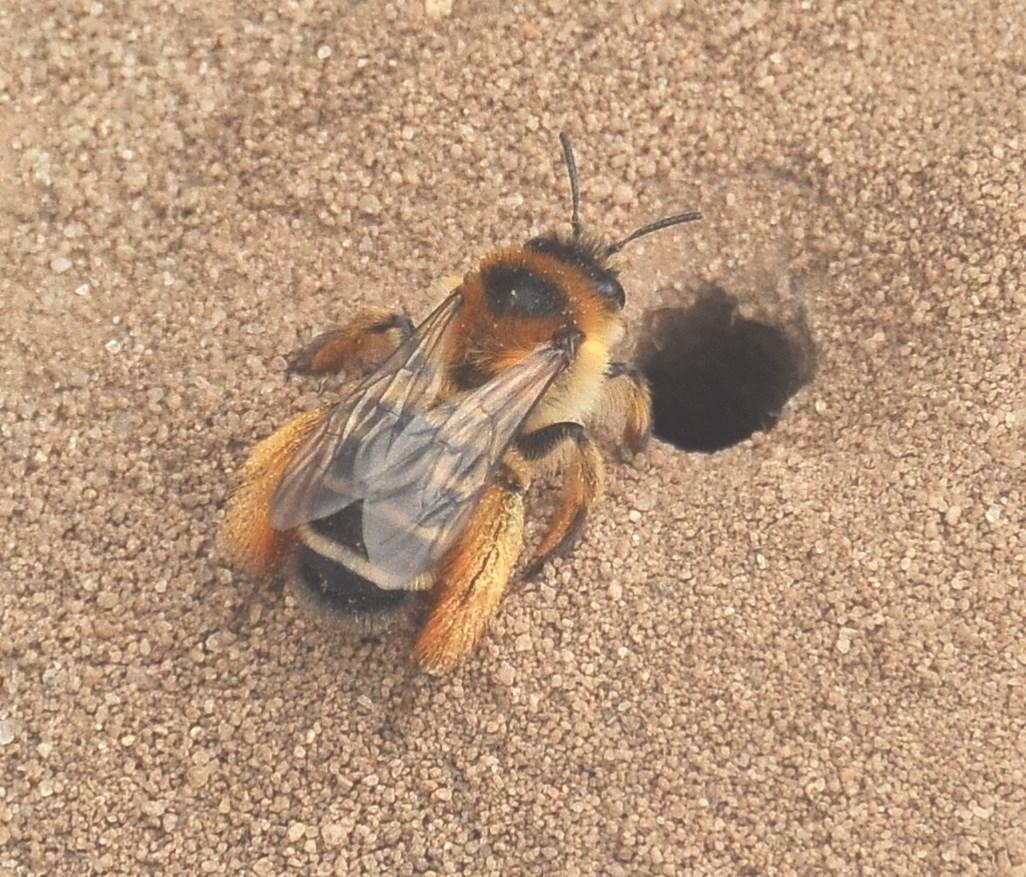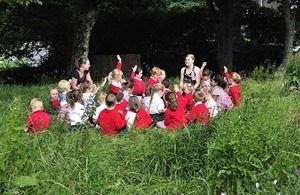
2 minute read
Children more motivated to learn outside Natural England
an egg, but it’s a very similar lifecycle in other regards to their wasp neighbours. The pantaloons are very distinctive, especially when their legs are full of bright yellow pollen (they specialise in collecting from flowers in the daisy family), though they do seem to avoid the worst heat of the day and are best spotted before elevenses and after tea and cake in the afternoon. Don’t think that avoiding German wasps means life is easy for all these insects though. When their back is turned, there are tiny parasitic wasps and flies trying to sneak in and lay eggs on undefended territory. The bee-wolves especially are good at defence; they will fill the entrance with sand when leaving or are busy down the burrow to keep out unwelcome visitors. They will also at times sit at the entrance to their home and the sight of their bright yellow faces peering out at people delights visitors of all ages and drives photographers wild. Get too close and they’ll pop back into the hole, but patience brings rewards and most people manage to leave with a photographic memento. These few weeks of path-side activity don’t last long however. As the nectar the adults feed on becomes scarce, they will die, the loose soil will wash away and the path will go back to simply being something to walk on. Until the larvae developing underground pupate and emerge next year to fascinate another group of visitors…
Pantaloon or Hairy legged Mining Bee Photo: Matt Parrott
Children more motivated to learn outside
Natural England
Children from 125 schools across the South West of England are happier, healthier and more motivated to learn thanks to a new project commissioned by Natural England that has turned the outdoors into a classroom and helped schools transform ways of teaching. The findings were released on 14th July by the Natural Connections Demonstration project, a 4-year initiative to help school children – particularly those from disadvantaged areas – experience the benefits of the natural environment by empowering teachers to use the outdoors to support everyday learning. The project, which is funded by Natural England, Defra and Historic England and delivered by Plymouth University, is the largest project of its kind in England and has already helped more than 40,000 primary and secondary school pupils get out of their classrooms and into the outdoors – whether that’s a maths lesson in a local park or drama out on the school field.
Read more >

Pupils taking part in an outdoor learning session © Natural England









